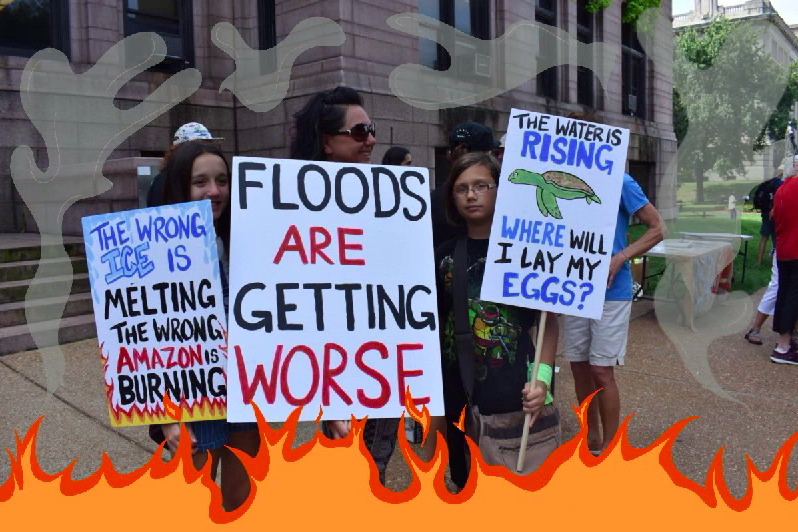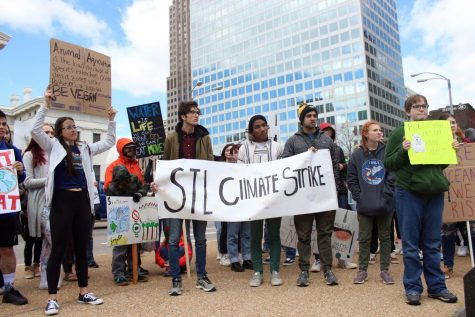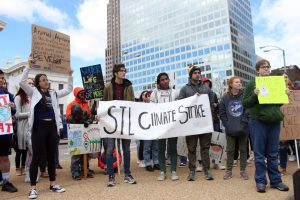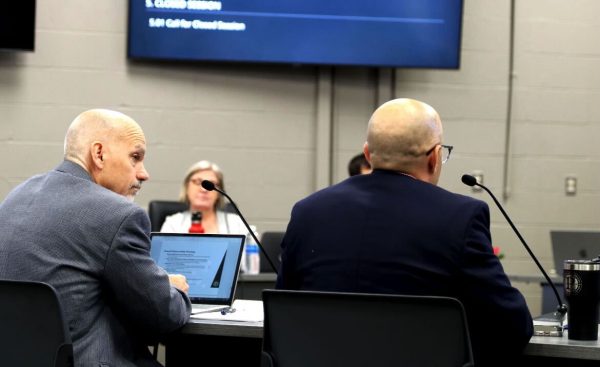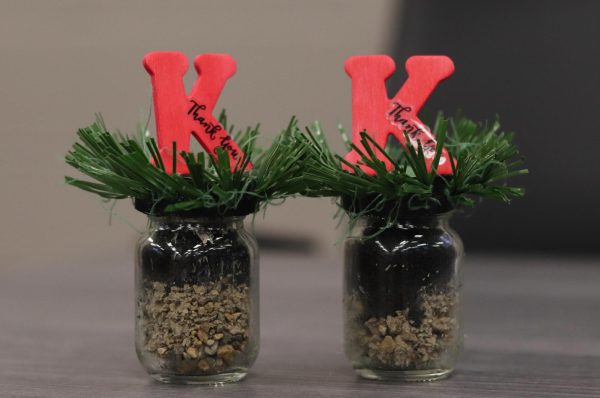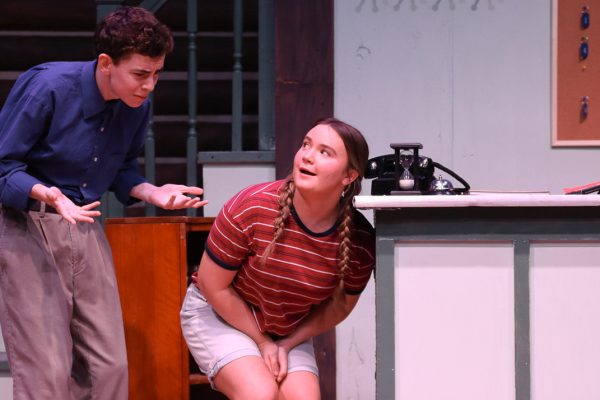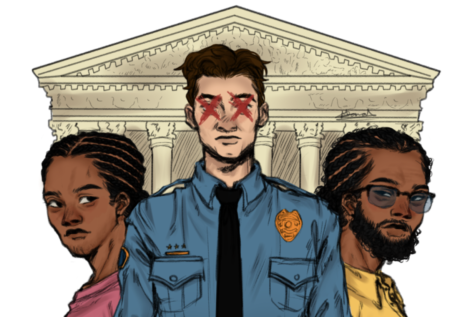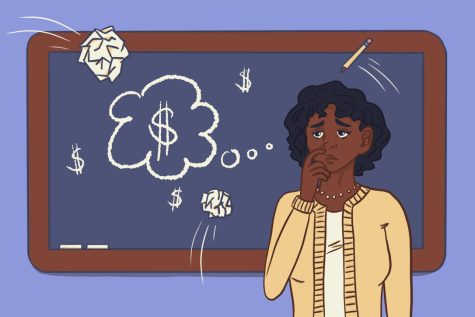Climate revolution
A family stands outside of the STL city hall at the climate strike.
Protesters holding signs marched across the crosswalk leading to the St.Louis city courthouse chanting, as police officers blocked traffic. With large paintings of the Earth and signs reading “There Is No Planet B” their steps were in sync and their purpose was clear: to declare a national climate emergency.
The march to the courthouse comes with the global youth strike called “Fridays For Future,” initiated by Greta Thunberg, a 16-year-old Swedish activist. According to The New York Times, the attendance at the strikes was estimated to be around four million people in over 150 countries.
Students said they felt the urgency of climate change, and saw the climate strike as a way to demand action. Kylie Madden, freshman, said she feels disappointed with the policies combating climate change.
“I went [to the march] because I wanted to support the cause [of fighting climate change],” Madden said. “It is something that needs to be seen as an emergency rather than just something people need to be aware of.”
Among every sign with an Earth was another with the name “Trump” written boldly in the middle, condemning the president’s policy on climate change. In a tweet about freezing temperatures in the U.S, Trump stated that, “Global warming is an expensive hoax.”
It [climate change] is something that needs to be seen as an emergency rather than just something to be aware of. — Kylie Madden
Jennifer Luzynski, a protestor at the strike, said she is frustrated with the policies and lack of progression under Trump’s administration, and wants to the government moving in the right direction.
“We need to vote for people that do not debate science, ” Luzynski said. “Science is not a question. It is clear that climate change is real. I want us to get back into the Paris Agreement and all the things that say we’re gonna do something, rather than go in reverse.”
Jackie Kinealy, organizer of the St.Louis protest, feels government officials stalling progression is a result of the current state of politics and the influence of corporations on lawmakers. Kinealy said the strikes are calling out the need for reform of corruption within the system.
“The reason politicians haven’t done more about climate change is they want their job, ” Kinealy said. “The solutions are within our grasp, but the government hasn’t [changed policy] because of money.”
Marches have a big impact on bringing up the issue. Now it is more about putting it into action.
— Kate Reynolds
Charlie Blasingame, freshman, feels it is hard to change policy without a vote. Blasingame said strikes are a way to gain attention and make students’ voices heard.
“It is hard to do something about [climate change] and the government at our age,” Blasingame said. “Making your voice heard matters because it shows the negative impact [major corporations and politicians] are having.”
One of the climate strike’s initiatives was to reduce manufacturing and carbon emissions. Kate Reynolds, senior, said a major factor are fast fashion stores like H&M and Forever 21 that mass produce cheap clothing quickly. Reynolds said it is not just the corporations that are to blame.
“People forget it is supply and demand,” Reynolds said. “Wherever you put your money is the world you want to see in the future. It is these big businesses that are the problem, but in order to change it is really crucial that individuals take action.”
Some protestors point to lifestyle changes like using reusable items and going plant based, vegan or vegetarian to combat consumerism. Claire Stolze, youth organizer, felt these strikes are the start of a climate revolution. Madden said the movement’s sense of urgency creates a sense of unity amongst the activists.
“It got into this stride of passion, and I could see that these people weren’t angry for the sake of being angry,” Madden said. “They were angry for a reason, and we were all trying to stand up to the people who were stopping change from happening. I feel disappointed that people are not angrier.”
Reynolds said the march is just the beginning of the “Fridays for Future” movement, and the news surrounding the topic can’t be the end of discussion. She wants this to be a call to action, for people to go home and not let the movement die down.
“Marches have a big impact on bringing up the issue. Now it is more about putting it into action,” Reynolds said. “You can go to this march and hold up a sign saying you really care. In your personal life [it is important] that you do what you preach, and I think that sometimes is the issue.”
Your donation will support the student journalists of Kirkwood High School. Your contribution will allow us to purchase equipment and cover our annual website hosting costs.

she/her
Hobbies and Interests: Cross country, track, hiking, baking and blasting music in my room.
Favorite Song: "I’m Like A Bird" by Nelly Furtado
Favorite...
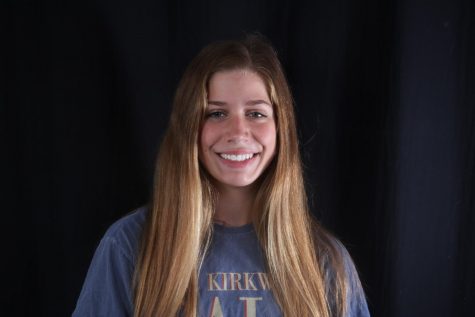
Interests: Running, drawing, governing + watching parks and rec.
Favorite musical artist: Cage The Elephant.
Favorite quote: "I couldn’t think...


